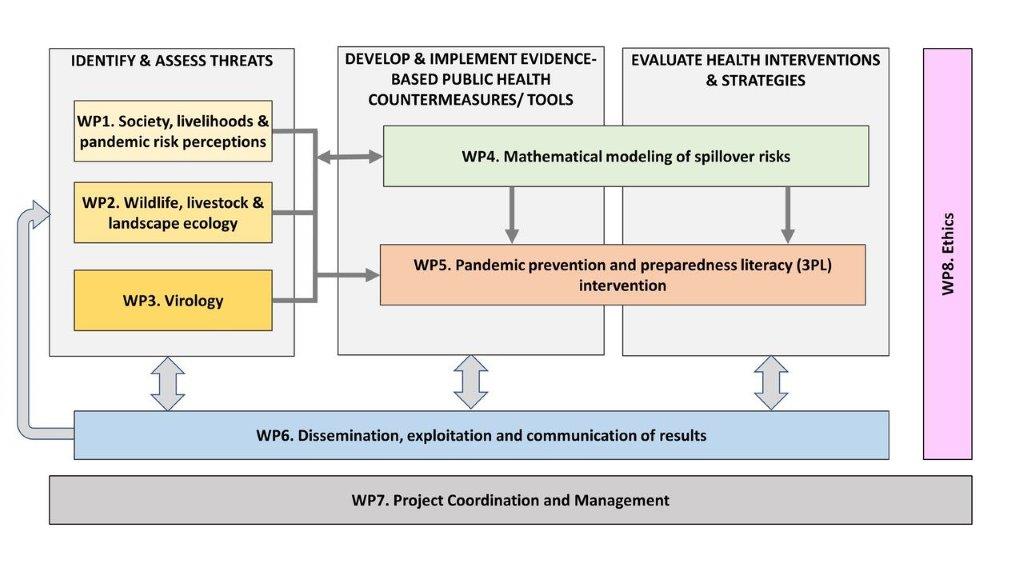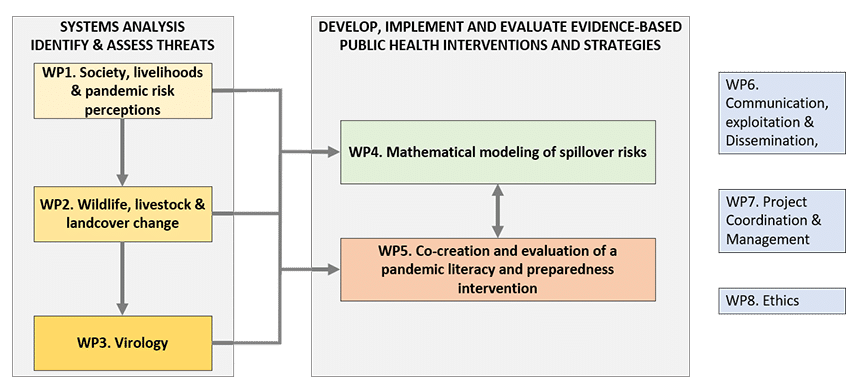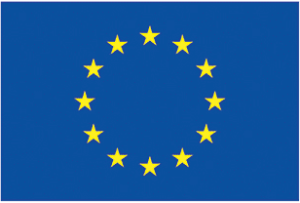
Mission
Our mission is to investigate potential pandemic drivers along nature-rural-urban gradients through a comprehensive collection of social and biological data, as well as predictive modeling of zoonotic spillover rates and disease emergence in high-risk settings. By improving the knowledge and practices of at-risk communities, we strive to prevent or, at the very least, reduce the likelihood of local outbreaks becoming global pandemics.
Objectives
- To enhance the understanding of the drivers of emerging infectious disease (EID) pathogens and spillover, and their underlying interactions across the environment, animals, and human domains.
- To provide healthcare providers with an improved evidence-base and tools that enable more effective public health countermeasures.
Ambitions or Beyond State of Art
PANDASIA has ambitious goals in the following areas:
- Transdisciplinary and trans-sectoral approaches, including the integration of social sciences.
- Co-development and co-evaluation of interventions with community members to ensure cultural and contextual relevance. This aims to improve health and pandemic literacy, moving towards people-centered pandemic preparedness and response.
- Exploration of alternative genome sampling methods to assess biodiversity and viral presence.
- Implementation of high-throughput and viral capture approaches, such as shotgun and hybridization capture sequencing.
- Development of an easy-to-use immunological prototype assay.
- Co-creation of the first community-based Pandemic, Preparedness, and Prevention Literacy (3PL) intervention.
Partners
| No. | Abbreviations | Full name | Country | Main roles |
| 1 | NMBU | Norwegian University of Life Sciences | Norway | Coordinator |
| 2 | NVI | Norwegian Veterinary Institute | Norway | WP4 |
| 3 | UKHD | Universitätsklinikum Heidelberg University | Germany | WP5 lead |
| 4 | IZW | Leibniz Institute for Zoo and Wildlife Research | Germany | WP2-WP3 |
| 5 | QMUL | Queen Mary University of London | UK | WP1 |
| 6 | CU | Chulalongkorn University | Thailand | WP1 lead |
| 7 | UMU | Umeå University | Sweden | WP4 lead |
| 8 | KKU | Khon Kaen University | Thailand | WP3 lead |
| 9 | MU | Mahidol University | Thailand | WP2 lead |
| 10 | SUPA71 | SUPA71 Co., Ltd. | Thailand | WP6 lead |

Mission
Our mission is to investigate potential pandemic drivers along nature-rural-urban gradients through a comprehensive collection of social and biological data and predictive modelling of zoonotic spillover rates and disease emergence in high-risk settings to improve the knowledge and practices of at-risk communities prevent or at least reduce the likelihood of local outbreaks becoming global pandemics.
Objectives
- To improve understanding of the drivers of EID pathogens and spillover and their underlying interactions across environment, animals, and human domains.
- To provide health care providers a better evidence-base and tools for more effective public health countermeasures.
Ambitions or Beyond State of Art
PANDASIA has ambitions in the following –
- Transdisciplinary, trans-sectoral approaches, and integration of social sciences.
- Intervention co-developed & co-evaluated with community members to ensure cultural and contextual relevance and improve health and pandemic literacy to move towards people-centered epidemic preparedness and response.
- Alternative genome sampling methods to assess biodiversity & viral presence.
- High throughput and viral capture approaches (shotgun and hybridization capture sequencing)
- Develop an easy-to-use immunological prototype assay.
Co-creation of the first community-based Pandemic, Preparedness, and Prevention Literacy (3PL) intervention.









